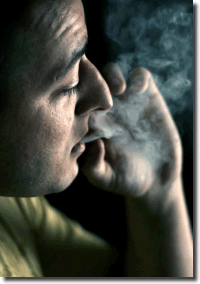
Marijuana Detox
Marijuana addiction is very deceptive in that most marijuana addicts do not feel that they are addicted at all and that marijuana detox is far from necessary. The typical attitude of marijuana addiction is, "I can quit any time. I'm just doing it because it's fun and something to do when I'm board." So they smoke every day, even several times a day, and gravitate towards others who also smoke marijuana and compulsively seek out and use more marijuana and include marijuana as a part of their daily lives. Eventually the addict feels he "needs" marijuana and finds himself not wanting to quit for fear of withdrawal symptoms such as restlessness, loss of appetite, trouble sleeping, weight loss, and depression. Is this not addiction?
Marijuana Detox is often required for those individuals who are addicted to marijuana as described above. Marijuana detox is the first step of a successful marijuana addiction recovery. The goal of marijuana detox should be to rid the body of accumulated marijuana toxins, replentish vitimin and mineral defeciences, restore sleeping and eating habits, provide medical and emotional support as well as provide a stable support system during the initial period of abstenence. It isn't until marijuana detox is complete, that the addict can effectively participate in a comprehensive therapeutic treatment program because the symptoms and cravings of marijuana withdrawal need individualized attention and focus. Once marijuana detox is accomplished, the addict is less influenced by the physical and emotional cravings and his thought process is clearer which now makes him capable of responding to further treatment.
Marijuana Detox and Withdrawal
It is suggested that marijuana detox take place under the care of marijuana detox professionals because marijuana withdrawal symptoms can actually be quite powerful and often include: irritability, mood swings, headaches, loss of appetite, depression, anxiety, weakness and nausea. Generally speaking, the individual will go through these withdrawal symptoms for several days during the marijuana detox process. None of the symptoms are life-threatening on their own, but they can often lead to relapses and breaking away from their treatment plan if marijuana detox is not done within a structured setting.
Contrary to most other drugs of abuse, marijuana (THC) can stay in the body for very long periods of time because THC is fat-soluble, which means that it is stored in the fatty cells, tissues, and organs of the body, including the brain. These drug metabolites in the person's system can trigger drug cravings and effect the person's mood, energy levels, sleep patterns, and overall health.
Marijuana Detox Methods
Because each person is different, marijuana detox programs differ widely in their philosophy and detox methods in order to accommodate specific needs. Types of marijuana detox include but are not limited to; out-patient marijuana detox, in-patient marijuana detox, "at home" marijuana detox remedies and products, vitimin replacement marijuana detox, holistic marijuana detox, and sauna based marijuana detox.
There are differing beliefs as to which of these marijuana detox methods are the most effective, however scientific research has shown that marijuana detox programs that utilize sauna treatments and vitamin therapies are leading the industry in effectiveness. The sauna based marijuana detoxification process removes the drug toxins and residuals in the persons body and the vitamin therapies speed up the process of repairing brain chemistry. Flushing these accumulated toxic residues eliminates drug cravings as well as improves sleep patterns and reduces anxiety and depression.
Marijuana Detox Programs
Marijuana detox programs can vary in the length of time depending on the degree of addiction and the method of detoxification. Most marijuana detox programs generally take 3 to 5 days on average however marijuana detox programs that utilize sauna treatments and vitamin therapies can take several weeks to complete. Remember that a marijuana detox program should not be viewed as full rehabilitation because marijuana detox alone does not contain the necessary components of a full recovery program. The most effective marijuana detox programs will continue on and lead into a long term drug-free residential marijuana treatment usually lasting up to 3 to 6 months in length where the marijuana abuser will learn about addiction, recovery, and relapse. They also address misguided beliefs about their self, others, and their environment. Attending a residential marijuana treatment program helps the recovering marijuana user make lifestyle changes, manage feelings, develop coping tools, and learn marijuana refusal skills. In addition, they learn to identify relapse warning signs and thoughts that may lead them to relapse in the future.









